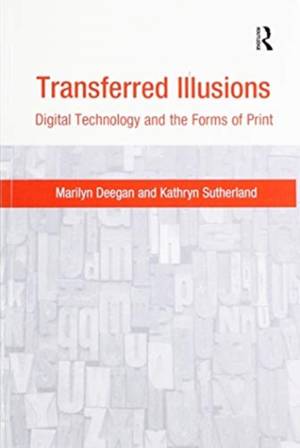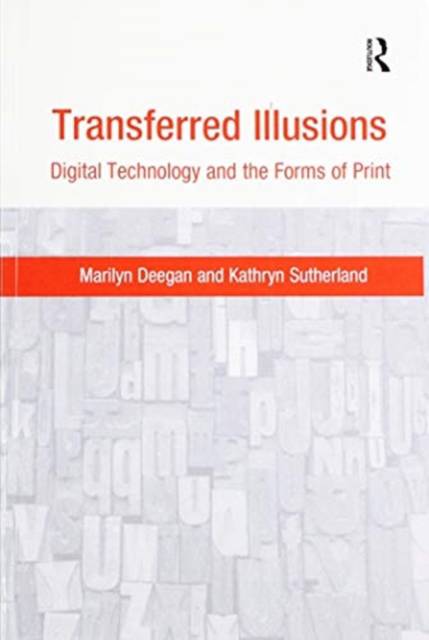
- Afhalen na 1 uur in een winkel met voorraad
- Gratis thuislevering in België vanaf € 30
- Ruim aanbod met 7 miljoen producten
- Afhalen na 1 uur in een winkel met voorraad
- Gratis thuislevering in België vanaf € 30
- Ruim aanbod met 7 miljoen producten
Zoeken
€ 71,95
+ 143 punten
Uitvoering
Omschrijving
This is a study of the forms and institutions of print - newspapers, books, scholarly editions, publishing, libraries - as they relate to and are changed by emergent digital forms and institutions. In the early 1990s hypertext was briefly hailed as a liberating writing tool for non-linear creation. Fast forward no more than a decade, and we are reading old books from screens. It is, however, the newspaper, for around two hundred years print's most powerful mass vehicle, whose economy persuasively shapes its electronic remediation through huge digitization initiatives, dominated by a handful of centralizing service providers, funded and wrapped round by online advertising. The error is to assume a culture of total replacement. The Internet is just another information space, sharing characteristics that have always defined such spaces - wonderfully effective and unstable, loaded with valuable resources and misinformation; that is, both good and bad. This is why it is important that writers, critics, publishers and librarians - in modern parlance, the knowledge providers - be critically engaged in shaping and regulating cyberspace, and not merely the passive instruments or unreflecting users of the digital tools in our hands.
Specificaties
Betrokkenen
- Auteur(s):
- Uitgeverij:
Inhoud
- Aantal bladzijden:
- 218
- Taal:
- Engels
- Reeks:
Eigenschappen
- Productcode (EAN):
- 9781138252271
- Verschijningsdatum:
- 11/11/2016
- Uitvoering:
- Paperback
- Formaat:
- Trade paperback (VS)
- Afmetingen:
- 156 mm x 233 mm
- Gewicht:
- 452 g

Alleen bij Standaard Boekhandel
+ 143 punten op je klantenkaart van Standaard Boekhandel
Beoordelingen
We publiceren alleen reviews die voldoen aan de voorwaarden voor reviews. Bekijk onze voorwaarden voor reviews.











